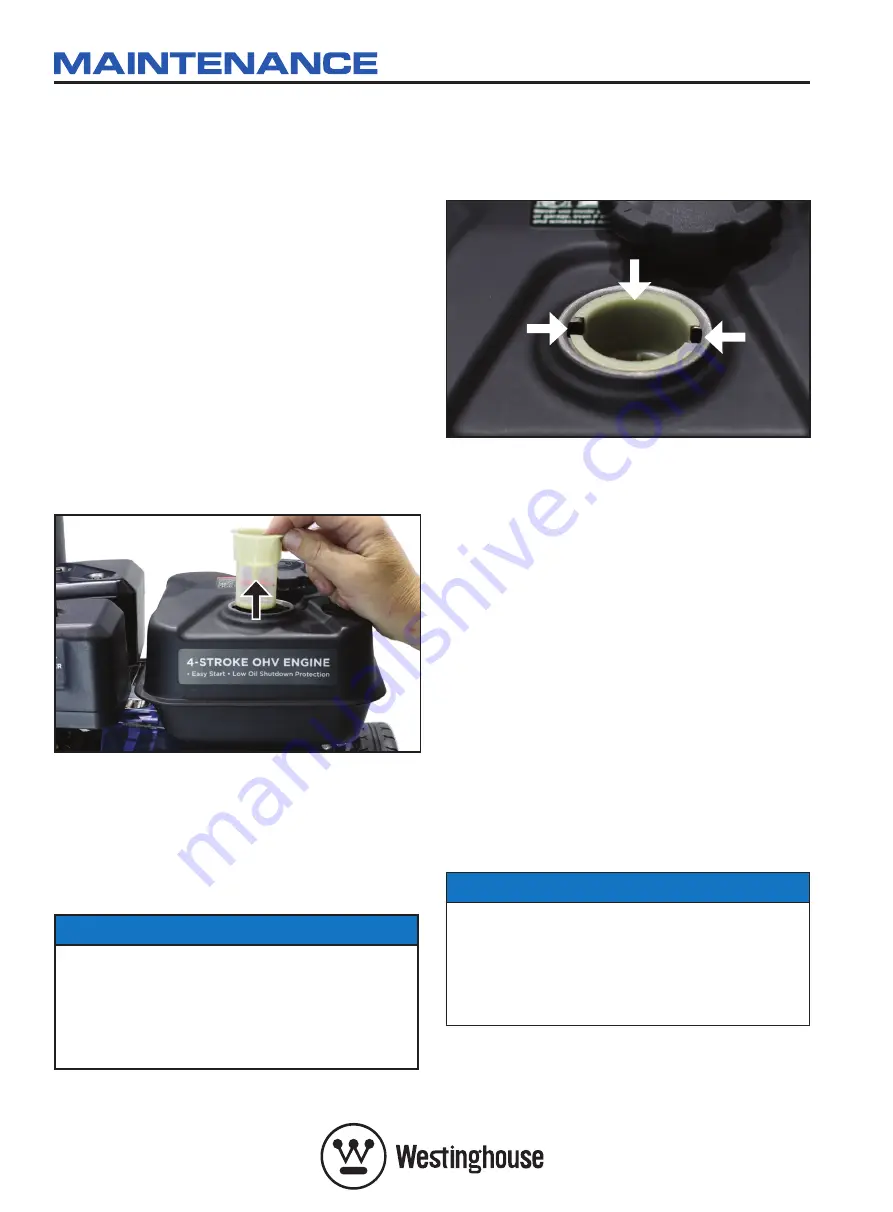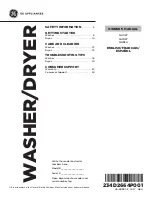
24
FUEL STRAINER
Check and clean the fuel strainer after every
50 hours of use or every year, whichever occurs first.
It is recommended that this maintenance task also
be performed each time when filling with fuel from
any source other than directly from a service station
bowser.
1. Stop the pressure washer, if running.
2. Allow the pressure washer to cool down until the
muffler heat shield is cool to the touch.
3. Move the pressure washer to a level surface.
4. Clean area around the fuel cap with a rag.
5. Remove the fuel cap and set it aside on a clean
surface.
6. Remove the fuel strainer by hand from inside the
filler hole on top of the fuel tank (see Figure 31)
taking care not to tear or otherwise damage the
fine mesh screen. Keep the fuel strainer vertical so
that any trapped liquid or solids do not spill onto
the pressure washer.
Figure 31 – Removing the Fuel Strainer
7
. Pour the contents of the fuel strainer into
a suitable waste receptacle. Low pressure
compressed air not exceeding 200 kPa (29 psi)
can be used if necessary for blowing onto the
outside of the strainer mesh to remove any
trapped fine grit.
NOTICE
Never dispose of fuel or fuel contaminants by
dumping either of them into a sewer, on the ground,
or into groundwater or waterways. Always be
environmentally responsible. Follow the guidelines
of the government agencies for proper disposal of
hazardous materials. Consult local authorities or
reclamation facility.
8
. Re-install the fuel strainer by hand inside the filler
hole on top of the fuel tank (see Figure 32). Make
sure it is fully inserted into the opening and that
the two notches in its rim align with the notches in
the rim of the fuel tank filler neck.
Figure 32 – Re-installing the Fuel Strainer
9. Re-install the fuel cap.
FUEL SEDIMENT CUP
Tools required –
10 mm spanner.
1. Stop the pressure washer, if running.
2. Allow the pressure washer to cool down until the
muffler heat shield is cool to the touch.
3. Move the pressure washer to a level surface.
4. Move the fuel valve lever to the
OFF
position.
5. Clean the exterior of the fuel valve and sediment
cup with a rag.
6. Unscrew the sediment cup anti-clockwise
(see Figure 33) taking care to hold it with one
hand to prevent it from dropping onto the ground
and spilling its contents. Remove also the O-ring
carefully (see Figure 34) by hand.
7. Pour the contents of the fuel sediment cup into a
suitable waste receptacle and then use a rag to
wipe it out clean and dry.
NOTICE
Never dispose of fuel or fuel contaminants by
dumping either of them into a sewer, on the ground,
or into groundwater or waterways. Always be
environmentally responsible. Follow the guidelines
of the government agencies for proper disposal of
hazardous materials. Consult local authorities or
reclamation facility.
















































